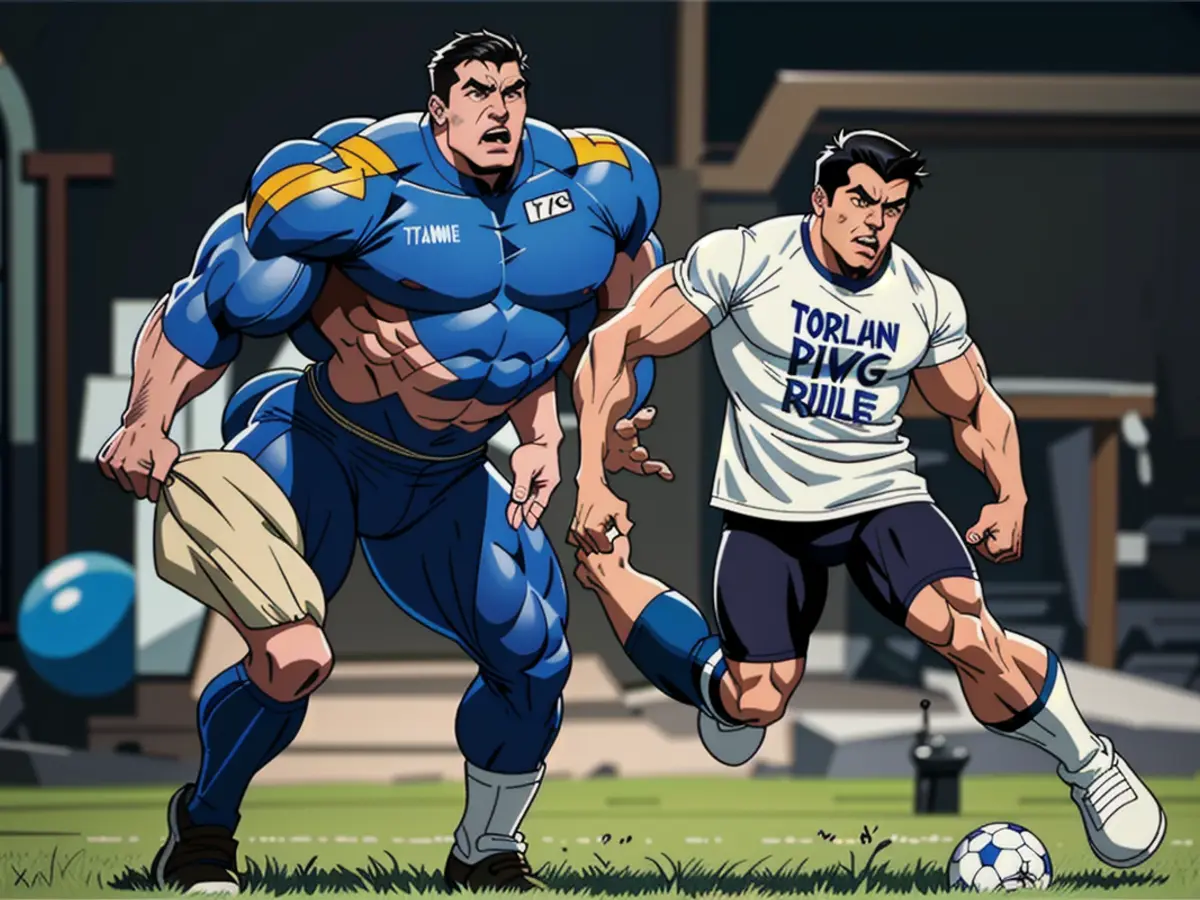Finding a Silver Lining: Nagelsmann's Optimistic Approach to Germany's National Team
After an underwhelming performance in the nations league, Julian Nagelsmann, the new German national soccer team coach, is eager to change the negative vibes surrounding the team and instill a sense of optimism. In a candid interview on ZDF's "Sportstudio," he proposed some intriguing ideas to elevate the team's game and inspire confidence among its supporters.
The German football nation is currently grappling with volatile emotions. On one hand, they find themselves closer to the next tournament disaster than to a big surprise. On the other, Nagelsmann is well-aware of the historical opportunity that lies ahead, not only for him but for the German footballers as well. After all, not everyone gets to experience a home European Championship, especially one in their lifetime. Nagelsmann's main objective is to encourage people to view the situation positively while insisting that the team has an inherent responsibility to turn things around.
With a flicker of determination in his eyes, Nagelsmann acknowledged that the squad structure is the most significant issue. Can Germany truly join the ranks of footballing giants and challenge competitors like England, France, and Spain at the 2024 Euros? While Nagelsmann couldn't provide a definitive answer, he was confident that he could address the severe problems plaguing the defense by making clever adjustments.
Defense: The Key to Unlocking Success
The German defense isn't remarkably strong, as evidenced by its shaky performance against Turkey and Austria in November. Nagelsmann redirected his focus towards refining the squad structure, particularly in the back line. He discussed the historical 2014 World Cup team, which featured a defensive unit anchored by Mats Hummels and Jérôme Boateng and boasted the stability provided by Philipp Lahm.
Kimmich's New Role on the Right Side
In search for solutions, Nagelsmann is contemplating a shift in roles for Joshua Kimmich, moving him from the center to the right-back spot. According to him, making such an adjustment would not result in a 180-degree transformation but instead optimize Kimmich's versatility. The German midfielder has expressed his support for this idea.
Havertz Experiment Officially Over
Kai Havertz's experiment to assume the left full-back and wingback position came to an end, as Nagelsmann acknowledged that defense needed to be handled by a more established club player. Despite the lack of success, Nagelsmann maintains a positive attitude, citing Havertz's two exceptional performances in that role.
Gündoğan's New Offensive Role
In a bid to strengthen the midfield, Nagelsmann revealed that Ilkay Gündoğan would need to play a more offensive role, taking inspiration from his tenure at Manchester City. The captain had been instrumental in leading their team, acting as the team's conductor and playmaker. This aggressive approach aligns with Gündoğan's desire for everyone to know their assigned roles on the pitch to cultivate a fruitful symbiosis within the team.
A New Look at the Left Side
While new names have not yet been announced to patrol the left side, it is clear that Germany is looking for a more combat-ready defender to protect their goal.
Julian Nagelsmann has proven that he is not one to shy away from difficult challenges, affirmed by his willingness to experiment with players and positions to instill confidence in his team. His extension for Euro 2028 indicates Germany's long-term commitment to finding the right formula to solidify its position among the world's elite footballing nations.
What's on the Horizon?
- A potential shift in position for Joshua Kimmich, as the talented midfielder may be tasked with playing right-back, providing a fresh and efficient strategy.
- Ilkay Gündoğan sets his sights on embracing a more offensive role, hoping to replicate his successful playmaker position at Manchester City and elevate the German midfield.
- Nagelsmann and the German national soccer team explore potential players for strengthening the left side of defense. The team is focusing on blending in young talent and experienced club players who can provide a solid and reliable foundation.
As Nagelsmann continues to shape the German national soccer team, optimism remains the guiding light for both supporters and players, eager for Germany to reclaim its glory days in the world of football.
Sources:
Enrichment Data:
- Nagelsmann is expected to approach the competition in Euro 2028 with a long-term strategy, incorporating elements of stability, youth integration, and tactical flexibility in position changes. The Nations League will serve as a trial ground for testing players' abilities and synergies.
- In order to solidify the defense, Nagelsmann considers experimenting with Josh Kimmich and planning his position shifts based on the team's needs. Other players like Tom Bischof enjoy flexibility to adapt in various midfield roles, which can be a valuable asset for the team.
- Leadership plays a crucial role in the German national team. While Joshua Kimmich is considered one of the favorites to lead as captain, other names like Jonathan Tah emerge as stable and consistent options. This positions Nagelsmann at an advantage in making an informed decision.
- Tactical adjustments must be made to prepare for the Euro 2028, which will be hosted in the UK and Ireland. Confronting different competitor styles and local playing surfaces will require finesse and strategic positioning to succeed.
- Developing young talent like Tom Bischof is a chief focus for Nagelsmann, as incorporating these fresh individuals can improve the team's overall ability and strategy.








